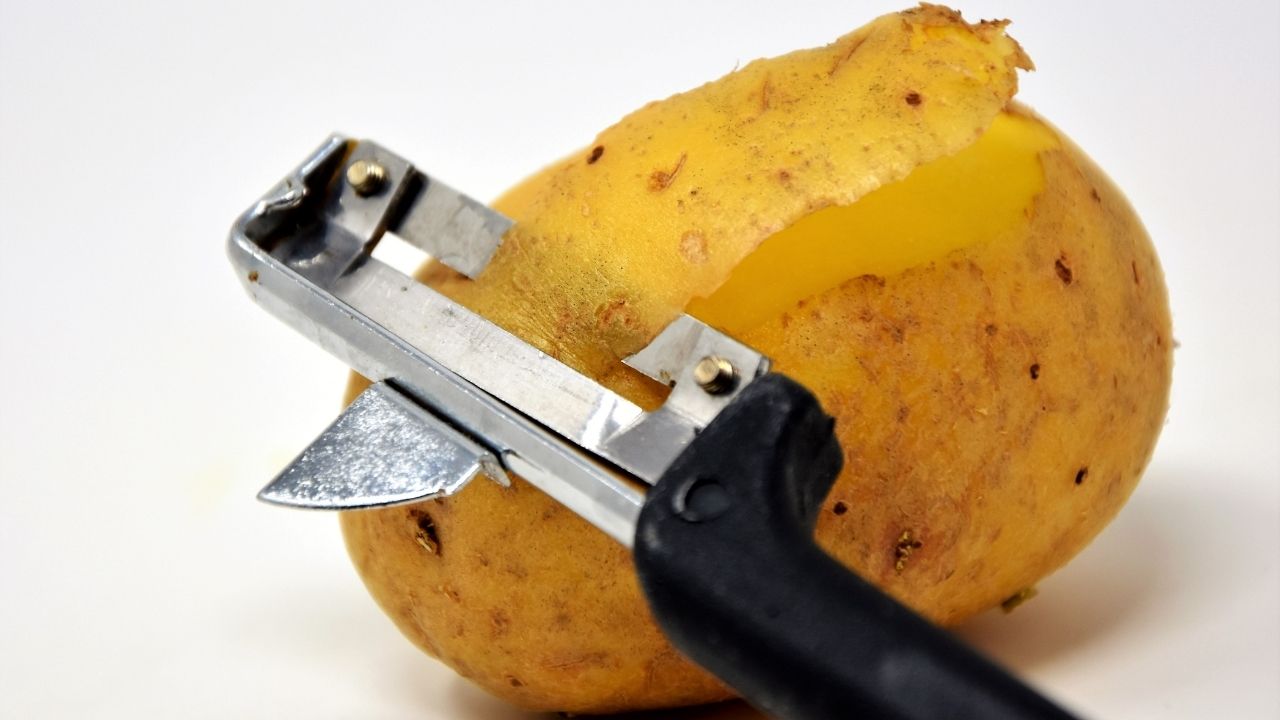What to eat and avoid in thyroid – Hypothyroidism and Hyperthyroidism
I often hear I have a thyroid – I am gaining weight or I am losing weight. The thyroid gland occurs in every human being, but when the thyroid gland does not function properly, such problems occur.
But first of all, it is important to know what is thyroid.
The thyroid is a type of endocrine or endocrine gland, located in a butterfly-shaped, throat. The thyroid gland produces T3 and T4 hormones, and the pituitary gland secretes TSH hormones that regulate T3 and T4 hormones. These hormones in our body:
- Helps in the balanced use of energy
- Maintains the metabolic rate
- Regulates body temperature
- Helps our brain, heart, and other organs to function properly

What is hypothyroidism or thyroid deficiency?
When thyroid hormones are less than their prescribed dose, the condition is called hypothyroidism.
Due to deficiency of these hormones, the metabolic rate of the body (the rate of energy expenditure of the body) decreases by 30-80 percent, that is, the body starts saving energy, which is the main cause of weight gain in hypothyroidism. Apart from this, due to deficiency of these hormones, you can see problems like feeling tired all the time, extreme cold, fatigue, constipation, skin dryness, hair loss, change in voice, delay in pregnancy.
What causes hyperthyroidism or excess of thyroid?
When the thyroid gland makes too much T3, T4, or both, the condition is called hyperthyroidism. Due to which the body is in a state of spending hypermetabolic state i.e. excessive amount of energy, which is the main reason for losing weight. Apart from this, you can see weakness, increased BP, rapid or irregular heart rate, trembling hands, lack of warmth, persistent stomach upset, outward eye emergence, irregular period problems in women.
What to eat if your thyroid is low – What to eat in hypothyroidism
Low-calorie diet– Focus on your daily energy consumption in the problem of hypothyroidism. Eat foods that help you lose weight or keep your weight regular, as well as reduce the intake of foods that cause weight gain. Go for it
To lose weight How should the food of the day-
- Divide your food throughout the day into 4 parts, ie 3 big miles (breakfast, lunch, dinner) and 3 small miles (ie eat fruits, makhanas, salads, roasted chickpeas, etc.) in the middle, so that the body So that the metabolic rate can function properly.
- Do not leave any time food.
- Include whole and coarse cereals such as bran flour, jowar (Sorghum), bajra (Pearl millet ), Ragi (Finger millet), kinva, oatmeal, multigrain bread, brown rice, etc. regularly
- Put more cucumber, onion, tomato, lettuce in the salad.
- For protein, include pulses, yogurt, beans, eggs, chicken, fish in your diet.
- For fiber, keep green leafy and colorful vegetables like okra, gourd, fenugreek, spinach, brinjal, tomato, carrot, bitter gourd, etc. in your diet regularly.
- One can easily consume orange, apple, seasonal, plum, melon, watermelon, peach, plum, papaya in fruits.
Apart from this, it is very important to take care of some things
Eat whole grains if your thyroid is low ie hypothyroid
In the problem of the thyroid, 200 to 300 grams of grains should be eaten throughout the day. Whole grains are very beneficial in thyroid problems. In addition, fiber-rich foods also relieve constipation. Its intake keeps the stomach full longer and also helps in losing weight.
Must include protein-rich foods –
Lentils contain very small amounts of fat and high amounts of protein. Foods with high protein are beneficial for thyroid hormones. Apart from this, they also help in reducing both fatigue and weight. Mung bean (Moong dal), rajma, Chickpea (Kabuli chana), Moth bean
(moth dal) and gram, egg, chicken, fish, etc. are very good sources of protein. According to daily requirements, 50 to 60 grams of protein should be eaten throughout the day.
Eat dried fruits and seeds –
Walnuts contain omega-3 acid, which makes the body fatigued, immunity, and brain cells are strong. Dried fruits contain an excess of selenium, which helps to stimulate thyroid glands. So eat selenium-rich foods like walnuts, sunflower seeds, etc. Do not eat more than 2 to 3 dry fruits a day as they contain too much fat and excess fat increases the problem of the thyroid. In addition, non-vegetarians can eat fish for omega-3 fatty acids. Salmon, tuna, sardine (a type of fish) contain a lot of omega-3 fatty acids in them. Hypothyroidism causes inflammation in the body, fish oil helps to cure it. Apart from this, it also makes immunity stronger.
Eat fruits and vegetables if the thyroid is low –
Antioxidant-rich vegetables and fruits reduce body stress and maintain water levels in the skin as well. Along with this, the fiber present in them also contributes greatly to reducing the weight. At the same time, they strengthen immunity. At least 500 to 600 grams of vegetables and fruits should be eaten daily. You can take them as salad soup, juice or boiled or Detox water. In these, you should eat vegetables like carrot, tomato, avocado, cucumber, capsicum, mushroom, beet, potato, pumpkin, onion, and paprika. Along with this, eat fruits like apple, cherry, grape, kiwi, papaya. Along with vegetables for antioxidants in thyroid problems, you should also eat herbs like chili, garlic, cinnamon, turmeric, parsley.
Eat foods containing iodine if the thyroid is low –
Your thyroid gland uses iodine to make thyroid hormones, so along with medicines, there should be plenty of iodine in your diet.
To increase the iodine intake in your diet, you should use iodized salt. Seafood (aquatic plants and animals) also contains a lot of iodine. Apart from this, milk and milk-based foods, rajma, spinach, egg yolks, fish should also be consumed regularly. Along with this, iodine fortified foods are also easily available in the market nowadays, they can also be used.
Vitamin D– Vitamin D has a very important function in the functioning of the thyroid gland, for this includes mushrooms, egg yolks, fish liver oil in your diet. Simultaneously sit in the sun. But there is a very small amount of vitamin D in natural sources, so take supplements from your doctors by periodically testing your vitamin D.
In addition to diet, keep physically active, as the metabolic rate in the hypothyroid slows down, exercise helps to increase the metabolic rate, so keep your body always active, exercise regularly for at least 45 minutes daily.
What not to eat if your thyroid is low – What not to eat in Hypothyroidism
Do not eat soybeans if the thyroid is low –
One study found that phytoestrogens were found in soybean and soy-rich foods, which inhibited the activity of thyroid hormone-producing enzymes. Therefore, foods containing soybean or soy should not be eaten.
Do not eat goitrogenic food – a patient of hypothyroidism should use guitrogenous foods sparingly. Guitrogenous foods prevent the thyroid gland from functioning properly. The group of these foods includes cauliflower, cabbage, soybean, tofu, mushrooms, radish, broccoli, turnip, mustard greens.
Do not eat high-fat foods if your thyroid is low –
Poor fat, saturated fatty acids increase obesity in the body as well as blood pressure and cholesterol levels. Chips, french fries, fried chicken, butter, mayonnaise, pasta, bread, burgers, canned foods, biscuits, snacks, biscuits, cakes, pastries, patis, cheese, cream, dalda etc. Therefore, avoid using them.
Do not eat processed food if your thyroid is low.
Processed food should not be eaten in the problem of low thyroid, because it is very high in sodium due to which there is a problem of water retention. Sodium is very harmful to patients with hypothyroidism or thyroid deficiency. Processed food cookies, cakes, pasta, and bread, eating canned foods not only increase blood sugar levels but also cause blood pressure problems. It should also be noted that if you suffer from this problem with high BP, do not eat more than 1.5 grams of sodium in a day.
Do not eat foods containing sugar if your thyroid is low –
The problem of hypothyroidism affects your metabolism, due to which you gain weight. Therefore, people suffering from hypothyroidism should avoid sugar or sugar-rich foods because it contains a lot of calories and does not contain any nutrients.
What to eat when your thyroid is growing – What to eat in hyperthyroidism
You have to keep in mind that foods that are harmful in the problem of hypothyroidism can be beneficial in the problem of hyperthyroidism. So let’s know what to eat and what not to eat if the thyroid is high.
How should diet in hyperthyroid-
As energy consumption is more than normal in this situation, we have to consume more energy than we need, which can help in gaining weight.
For high energy foods –
Flour, bread, rice, potato, sweet potato, full cream milk and yogurt, paneer, mango, sapota (chiku), lychee, banana, dates, semolina, jaggery, chocolate, honey, maple syrup can easily be taken without bran, Eat a balanced diet. Eat ghee or butter on bread, whenever you take milk, you can increase calories by adding syrup or chocolate powder daily.
Do not delay in two mines-
You can eat homemade laddus, milkshakes, corn salad, chana salad, cheese sandwiches, sago pudding, etc. in the middle meal (mid-mile). With which you will be able to increase your energy.
Keep a high amount of protein in food
Due to weight loss, muscles become weak, so eat high-protein foods, for this, pulses, beans, chickpeas, cowpea, curd, egg, fish, lean meats, etc. can be kept in your food. If your food is low in protein, then by asking your doctor, you can also take protein supplements.
High-quality fats are important.
Do include them in your diet. These will not only fulfill your daily fat requirement, but they will also help you in gaining weight. In these, you can take almonds, walnuts, pistachios, peanuts, white sesame seeds, flaxseed seeds, sunflower seeds, melon seeds, etc. in your salad, smoothie, fruit licking or in between meals or with tea, etc. For this, you include mustard, olives, sunflower, canola, sesame, coconut, homemade white butter, etc. in your meal.
vitamin D-
In this problem, the chances of thinning and weakening of bones are to a large extent, then eat such foods which are rich in vitamin D. For this, eat mushrooms, yellow egg, fish liver oil. Add to this the habit of sitting in the sun. But there is a very small amount of vitamin D in natural sources, so keep taking supplements by testing vitamin D periodically.
Take calcium for strengthening bones
Vitamin D is also required along with vitamin D to make bones strong. For calcium, milk and milk products, eggs, ragi, things made from soybean, oranges, chicken, fish, etc. can be used in your food.
Selenium is essential in the thyroid.
Selenium helps to balance thyroid hormone levels and protect your thyroid from disease, they are rich in chia seeds, mushrooms, tea, oatmeal, chicken, sunflower seeds, etc. You can also eat them by putting them in salads, smoothies, or roasting them.
Eat foods with omega-3 fatty acids when the thyroid is high –
Omega-3 is very useful in controlling fatty hyperthyroidism. You are well aware that the human body cannot produce nutrients on its own, so you need food as well as supplements. It helps in maintaining normal levels of thyroid in the body. Fish is the good source of omega-3 fatty acids. But vegetarian people can eat olive oil and flaxseed seeds for omega-3 fatty acids.
Eat dairy product if the thyroid is high –
The problem of hyperthyroidism may be treated through medication, but calcium is needed to build bones. Therefore dairy products should be eaten. Milk, cheese, and curd are good sources of calcium in dairy products. Apart from this, people who are allergic to lactose can use soy milk or almond milk.
Eat these vegetables if your thyroid is high –
Some vegetables are beneficial in the problem of hyperthyroidism. Vegetables such as cauliflower and broccoli reduce the production of thyroid hormones and also reduce hyperthyroidism symptoms. People who have high thyroid, they should eat at least one tablespoon of broccoli vegetable daily.
What not to eat when thyroid is increased – What not to eat in hyperthyroidism
Iodine-rich foods should not be eaten if the thyroid is high –
Although iodine-rich foods are beneficial for hypothyroidism, they have the opposite effect in the problem of hyperthyroidism. The thyroid gland is very sensitive to iodine. High iodine-rich foods produce more thyroxine hormones from the thyroid gland, leading to the problem of hyperthyroidism. Therefore, do not take more quantity of iodine in food. Do not take iodized salt or iodine fortified foods. Sea plants and fauna, fishes, beans, spinach, eggs have high iodine content, so eat them in small quantities.
Avoid taking water or any drink before meals-
With this habit, your stomach will be already filled, so that you will not be able to get a sufficient amount of energy. Drink water half an hour or an hour after meals. Buttermilk or lassi can be taken if the food feels thirsty in between.
Say no to junk food
You will definitely gain weight by consuming junk food, but along with weight, there are other health-related problems such as increased cholesterol, heart-related problems, increased blood pressure, increased abdominal obesity etc.
Essential tips for thyroid control – Tips to control thyroid hormones
Get regular tests done-
Check the lipid profile periodically to see if the change in metabolism is greater or lower than the prescribed level. Along with this, keep your drugs checked by doing thyroid function tests from time to time.
Check the weight regularly
The thyroid problem has a considerable effect on weight. Regularly check the weight and try to control it with diet and exercise.
Say no to smoking-
Smoking acts to suppress hunger and also worsens your metabolism. When you quit smoking, your appetite and metabolism return to normal, which makes you feel more hungry, as well as the body, has to spend less calories. In addition, your ability to smell and taste the food after quitting smoking improves. So leave it as soon as possible.
Take medicines regularly –
Take thyroid medicines regularly for the treatment of thyroid. If you stop taking drugs, in such a situation there is a possibility of hormones coming back more or less,
Along with this, take a balanced diet. Don’t stress Regularly















